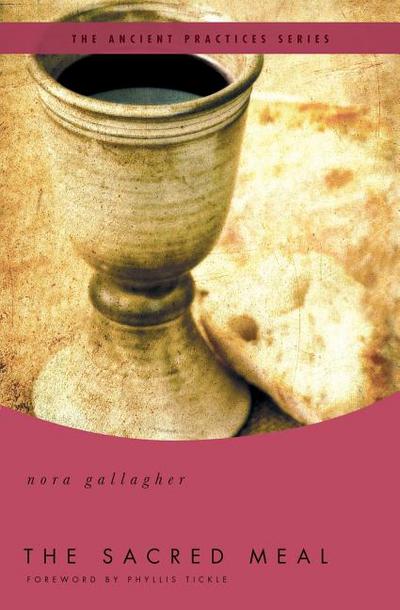

 |

|

The average rating for The Sacred Meal: The Ancient Practices Series based on 2 reviews is 2 stars.
Review # 1 was written on 2013-07-16 00:00:00 Sarah Winters Sarah WintersThe Sacred Meal wasn't a bad book. I think it's a bit too touchy-feely for me. There's not enough research, history, academics. It seems like a book of someone's reflection over Communion. Nothing wrong with that at all. But I was really hoping for something with more depth. |
Review # 2 was written on 2009-11-20 00:00:00 Richard King Richard KingI received this book as a review copy from the publisher. This book is part of a series exploring traditional spiritual disciplines. However, it's not about the historical or Biblical view of the Holy Communion since the author doesn't believe that the Bible is accurate or that the Christian religion is true. So the book is a memoir about what Communion has meant to the author. The author wrote a lot of things that sound good or even profound, but her teachings aren't found in the Bible or in the historical understanding of Communion. When she paraphrased the Bible, she didn't do so accurately. She quoted her friends on Communion much, much more than she quoted the Bible. One time, she quoted as insightful a bishop's thought about Communion then told the story of how he, in all seriousness, gave Communion to a flock of geese (p.64). I had to wonder why the editor asked her to write about Communion. Overall, I can't recommend this book. The following are things in the book that make me not recommend it: The author isn't a Christian but believes a mix of religious teachings including some Christian ideas (page 72). She thinks it doesn't matter how you worship or what you believe, it only matters how you live (p. 119). The author doesn't believe that the Bible is historically accurate or reliable (p. 110) and, at best, thinks we can only glean very generalized, symbolic teachings from it (p. 33, etc.). She thinks that Jesus was not perfect but progressively learned the perfect way to do things as he taught (p. 123) and that he changed his beliefs as he was influenced by various people he encountered (p. 62). He also was primarily focused on social justice (p. 22-24) and his resisting the Roman empire was why he was crucified (p. 18). She also thinks that the "Kingdom of God" that Jesus taught about was merely a goal of earthly social justice and peace--an alternate earthly government or society we can bring about by our own efforts (p. 34, 38, 56, 83). "The practice of Communion reminds Christians of a meal and many meals shared by followers of a man who wanted them to see a new kingdom" (p. 55). The author totally misses what event the Holy Communion celebrates/represents. "On the night of his life, Jesus said, 'Do this to remember me' (Luke 22:19 NLT). Many of us think these words...mean we're remembering Jesus when we drink of this cup and eat of this bread....Instead, I think Jesus wanted his disciples and everyone who came after him to remember what they had together. What they made together. What it meant to be together. How the things he wanted them to do could not be done alone. How the things he did could not have been done without them" (pp. 23-24). And, according to her, Jesus was not seen in human form after he was crucified (p. 135). The gospel writers were trying to convey something more metaphysical; that he became nature itself (p. 131). "Christ is everywhere. In the beans in your garden, in the waters of the lakes and rivers and mountains..." (p. 136) and "Christ is everywhere, especially in bread and wine....By this we are to understand that God is meant to be breathed in, God is meant to be bathed in, and finally, God is meant to be eaten" (p. 136). And "If Christ is everywhere, he is in us. We are his body now, his hands and his feet. We are all the ongoing incarnation" (p. 137). More to the topic, who should partake of Holy Communion? "Certainly, it makes sense to have some kind of relationship to the Christian story in order to take Communion" (p. 88), but "Communion is so important to me that I don't think there should be rules about who can take it and who cannot." So if you desire to take Communion, do so (p. 96). Is the Holy Communion meant as a symbol or do the bread and wine literally become Christ's body and blood? According to the author, neither. "Holy Communion is an act of the imagination" (p. 94). Also, it is humans and their participation in the Holy Communion that make it sacred/sanctified (p. 84). The book might be well-written in the grammatical sense, but her theology is whatever appeals to her. So I don't think she should have been the one to write on a traditional spiritual discipline even though she enjoys taking it. |
CAN'T FIND WHAT YOU'RE LOOKING FOR? CLICK HERE!!!